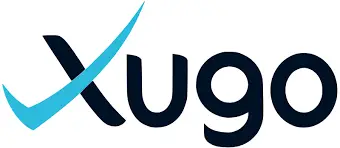What Is Food and Beverage Compliance Software?
Compliance with food and beverage industry regulations ensures safety, quality, and legal adherence. It involves meeting FDA and USDA standards, accurate labeling, regular audits, and implementing safety protocols like HACCP to protect consumers.
Top 5 Software for the Food and Beverage Industry in Compliance with Regulation
There are several software options available in the US market. Here are a few popular ones:

1. FoodReady AI
Pricing: Contact FoodReady for more information
Platforms supported: Web, iOS, and Android
Why use FoodReady AI?
FoodReady food and beverage software is designed to help food and beverage companies achieve and maintain compliance with industry regulations.
FoodReady AI Features:
- Regulatory Compliance Tracking – Monitors and documents compliance with FDA, USDA, and other regulatory standards.
- Automated Documentation – Generates and maintains accurate records of all compliance-related activities, reducing manual paperwork.
- Audit Preparation – Organizes and stores necessary documentation for regulatory audits, ensuring quick and easy access.
- Safety and Quality Management – Implements HACCP (Hazard Analysis and Critical Control Points) and other food safety protocols to prevent contamination and ensure product quality.
- Training and Certification – Tracks training and certification requirements, ensuring you are up-to-date on necessary skills and knowledge.

2. Lascom
Free version: Unavailable
Pricing: Contact Lascom to get a quote
Platforms supported: Web
Why use Lascom?
Lascom offers Food and Beverage Software that ensures compliance with industry regulations by enabling streamlined documentation, traceability, and quality control processes for enhanced food safety.
Lascom Features:
- Centralize and share key information and ensure data continuity
- Comply with any country-specific regulations
- Ensure information accuracy using our Supplier Portal

3. EQS
Free version: Unavailable
Pricing: Contact EQS to get a quote
Platforms supported: Web
Why use EQS?
EQS innovative compliance products digitalize compliance efforts, supporting daily tasks and enhancing efficiency in meeting regulatory requirements.
EQS Features:
- Document Management and Regulatory Alerts
- Risk Assessment Tools and Training Modules
- Audit Management, Reporting and Analytics

4. Xugo
Free version: Unavailable
Pricing: Contact Xugo to get a quote
Platforms supported: Web, Android
Why use Xugo?
Xugo is a cloud-based Warehouse Management System (WMS) designed to seamlessly connect workplace teams and processes, ensuring smooth business operations and robust compliance with regulations.
Xugo Features:
- Connect teams and processes
- Enable work programs
- Strengthen compliance with regulations and policies

5. Traceone
Free version: Unavailable
Pricing: Contact Traceone to get a quote
Platforms supported: Web, iOS, and Android
Why use Traceone?
Traceone software helps simplify food regulatory compliance efforts across product development with a single, on-demand food manufacturing compliance automation system.
Traceone Features:
- Leverage cloud data intelligence.
- Monitor changing food manufacturing laws.
- Expedite regulatory compliance checks.
Frequently Asked Questions:
Compliance software tracks and documents adherence to regulations such as FDA, USDA, and local standards. It automates record-keeping, generates necessary documentation, and ensures that all processes meet legal requirements.
Most compliance software is designed to manage various regulatory standards, including local, national, and international requirements, ensuring comprehensive compliance.
Key features include regulatory compliance tracking, automated documentation, audit preparation, labeling compliance, safety and quality management, and training and certification tracking.
Food safety compliance software organizes and stores all necessary documentation, making it easily accessible for audits. It ensures that records are up-to-date and accurate, facilitating a smoother audit process.
It implements protocols like HACCP (Hazard Analysis and Critical Control Points), tracks critical control points, manages safety documentation, and ensures compliance with food safety standards.
It tracks training requirements, schedules training sessions, and maintains records of employee certifications to ensure that all staff members are qualified and compliant with industry standards.
By automating and monitoring compliance-related activities, the software proactively manages requirements, ensuring that all regulations are met and reducing the risk of fines, recalls, and other penalties.





